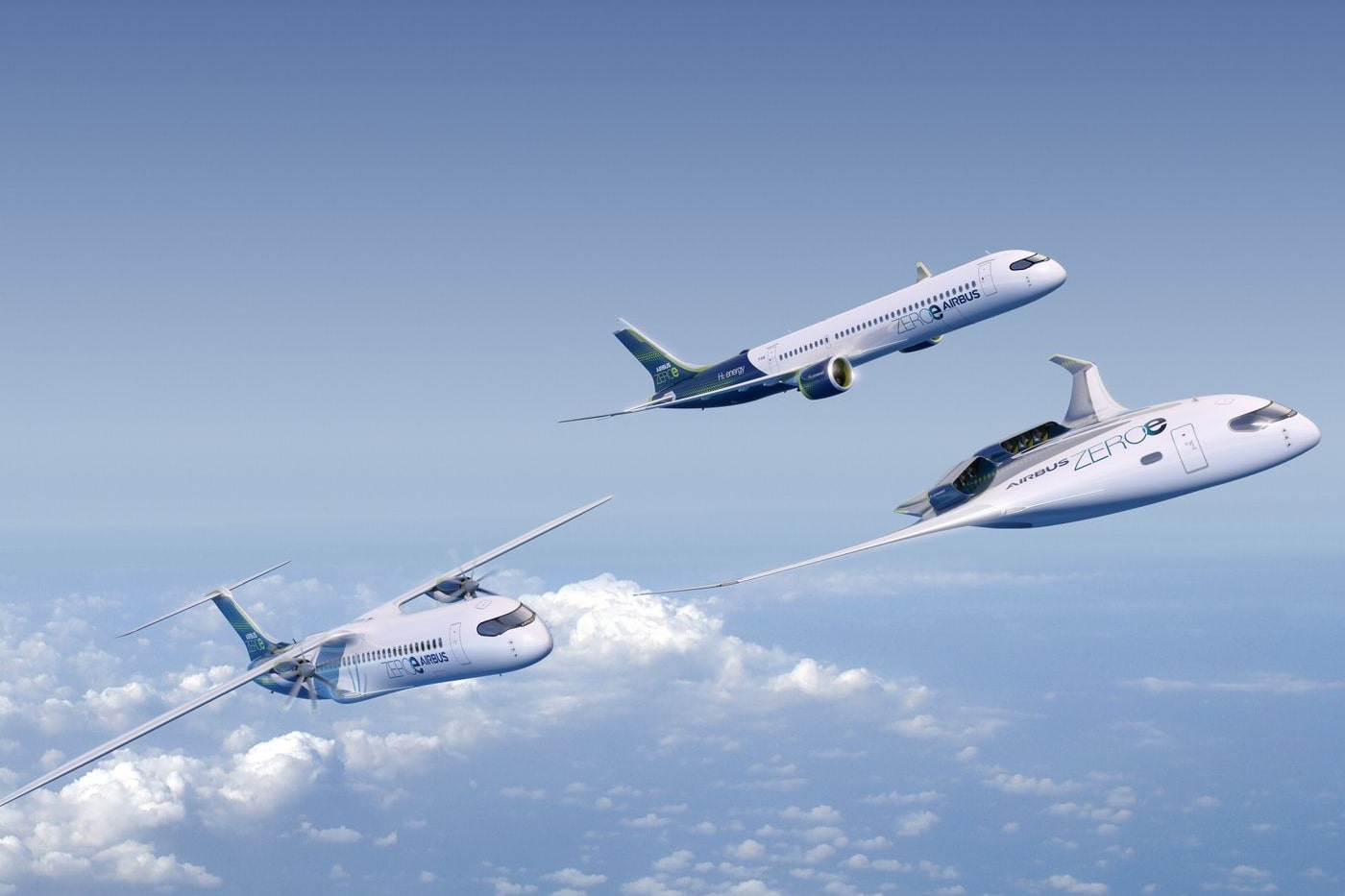Airbus pauses hydrogen aviation project
In 2020, Airbus presented three concepts for the world’s first zero-emission commercial aircraft, which could enter service by 2035. All of these concepts, codenamed ‘ZEROe’, relied on hydrogen as their main energy source. In the years that followed, Airbus pushed ahead with development, for example presenting a concept for a fuel cell aircraft with a propeller drive and entering into a partnership with Toshiba for superconducting engines for hydrogen aircraft.
But now the U-turn: Airbus has officially postponed its plans to develop a hydrogen-powered commercial aircraft. The reason for this is that the technology has progressed more slowly than expected, the company announced on Friday. So far, Airbus has seen hydrogen as a key element in reducing emissions.
“Hydrogen has the potential to be a transformative energy source for aviation. However, we recognise that developing a hydrogen ecosystem – including infrastructure, production, distribution and regulatory frameworks – is a huge challenge requiring global collaboration and investment,” Airbus wrote in a statement.
Airbus did not give a new timeline for the ZEROe project, but merely stated that the hydrogen aircraft “is expected to arrive later than 2035.” However, the company stated that it remains committed to bringing a commercially viable hydrogen-powered aircraft to the market.
According to the French trade union Force Ouvriere, Airbus employees were told at the beginning of last week that the technology is five to ten years behind the pace required to achieve the goal of zero-emission hydrogen aircraft by 2035.
Just a few days ago, Airbus announced that it was putting its project for an electric air taxi on ice. One of the reasons for this was that the batteries have so far been too weak to fly the targeted distance of 100 kilometres with four people on board.





1 Comment